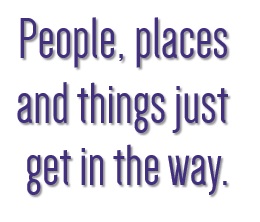This week it gives me great pleasure to host the motivational and inspirational Sarah Clark of Mariposa Coaching.
I met Sarah a couple of years back when I first started. I was networking as much as a I could just to get to know people and understand the dynamics of the business community in my home city of Bristol.
One of the unexpected benfits of networking is making new friends. It gets harder to make new friends the older you get, and often your friends become those there out of convenience (i.e. work colleagues); they probably wouldn’t be your friends in any other version of your life! Networking allows you to mix with such a diverse range of people, you can quickly build genuine friendships and I’m proud to count Sarah as a friend, as well as a contact in my business network.
Sarah is currently offering motivational mindset 1:1 and group coaching. If you have an area of your business or for your company you could do with some help with, check out her website for more information: Mariposa Coaching
Over to Sarah…
Steps to Get Motivated – Keep On Keeping On – The Motivational Mindset
So, we start off with a new idea, a goal right? We get really excited about this. It could be joining a new gym, it could be deciding to write a book, start a new class, set up a business… whatever it is, you start to feel good. Change is good, change is moving forward and producing something new. You can feel that you are on the brink of something…!
Contemplation Stage
We call this the ‘contemplation stage’ (as defined by Prochaska and Diclemente stages of change model).
We are contemplating making a change, weighing up the pros and cons about whether we want to move forward with our idea or if you are a Blackadder fan your ‘cunning plan’.
Decision Stage
The ‘preparation’ or ‘decision’ stage is where we decide to take action. This is a really enjoyable stage as we start telling other people about it and then commit to action. However, the favourite stage is when we put it into action. The person who starts going to the gym and notices how they are toning up, the author who starts producing, the entrepreneur who starts getting clients or the student who gains new learning.
Great!
Maintenance Stage
So, what’s the problem? Well it’s sort of tricky to stay motivated and maintain those changes. People, places and things just get in the  way.
way.
Sound familiar?
Speaking to most people in my time as a coach, this tends to be what I hear…
“How do I ‘keep on keeping on?'”
“How do I make sure the gym is part of my every day schedule, the book keeps getting written or I work on my projects every day?”
“How to keep doing my dance practice?”
“How do I manage doing it all?”
“How to stay motivated for the longer term?”
This is the ‘maintenance stage’.
There is no magic wand (if you are a fairy tale fan) BUT there are things we can do…
Step 1 – Recognise what drives you
Your drivers
Maslow 43 & McClelland 61 give a pretty cool definition of motivation ‘this is what drives people to behave in certain ways, in terms of their needs, aspirations and goals’.
Rollnick & Miller in 1995 (Motivational Interviewing) describe how ‘impetus for change’ comes from your own ‘intrinsic motives and goals’. We are looking at how our needs, aspirations and goals are motivational.
Daniel Goleman in his book ‘Working With Emotional Intelligence‘ has a whole chapter on ‘what moves us’. He looks at motivational competences held by outstanding performers. Let’s have a look at these and see if you can recognise which ones are applicable to you.
Achievement Drive
Those who strive to ‘improve or meet standards of excellence’. People who are really results orientated, like to set challenging goals, work on improvement from feedback and their reward is really what they will achieve. That keeps them going.
Commitment
This tends to link to those of us who really get motivated and stay motivated when linked to having a sense of purpose, when we are with others, or linked to organisational goals. For example, I recognise myself in this one when it is connected to being involved in dance practice with my dance class, working on new group choreographies, practicing as a group with a group vision of a performance in mind.
Initiative/optimism
In his book Goleman outlines how these competencies ‘mobilise people to seize opportunities and allow them to take setbacks and obstacles in their stride’. The main driver here is optimism, of being able to achieve what we set out to do, and the fear of failure is much less. People who are driven by this tend to be able to be able to seek their own goals rather than have external events motivate them. They tend to be proactive and also anticipate what is coming.
When we are looking at maintaining change – keeping motivated – we are looking at sustaining that change. Recognising what drives you can really help.
You can of course have a mixture of all 3 but which one of these drivers helps motivate you?
Which one of these drivers do you find motivational?
Step 2 – Avoid the PIG
No, I don’t mean those squeaky pink creatures; I mean the problem of immediate gratification. The thinking or systems for rewarding yourself that are getting right in the way of the motivational mindset. We all have them! Really!
We are conditioned to want rewards, to want good things… not a problem usually, but the trouble is when we want them and we want them NOW!
The sure way to get off track is to give in to the wants and desires that get in the way of keeping motivated with our goals. It could be the writer who procrastinates, the gym member who goes into the gym cafe for a breakfast but then ‘runs out of time to do a workout’, the person being careful with what they eat who finds it hard to say no to the cake or take the extra glass of wine. The goals can seem really far away when we are in the immediate.
A good question to ask yourself when you become distracted from staying on track with motivation is, “‘who are you fooling?”.
When you give into the immediate gratification – short term gain that leads to long term pain. Give yourself a reward yes, that’s good, but just watch it doesn’t lead to a slip back to where you started.
However, if you can recognise these you can squash that PIG… oink!
Step 3 – Work out what works
There will be situations where motivation is working for you, it is simple to get motivated and stay motivated and it’s worth noting what those are and when this is.
I know a writer who would write at 5am in the morning as that was when she was at her most productive and the house was quiet.
I work best about 8am, 4pm and 9pm… no rhyme, no reason, it just is – and can write a workshop or dance choreography when the house is quiet so no distractions.
What are yours? Think back to a time when you made a change and sustained.
Think back to a time when you made a change and sustained it, you were totally motivated to keep on keeping on and were in that motivational mindset.
It could be a mantra you have – a change statement. An image. The positive visualisation of the goal. A new tattoo or a holiday when you have achieved set targets (long term gain).
Think back to times you stayed motivated because you kept is simple, regular and achievable – it worked because you did not overwhelm yourself with too much so you gave up before you started. If I talk to professional dancers for example they will tell me they have a routine every day that makes it a habit and don’t overcomplicate it.
Final step – Happiness
Link it to your happiness.
We only have one life so let’s use it wisely and get motivated to do things and make changes because it gives us joy. See step 1 what drives us!
Since 2000 I’ve been coaching and training clients facing some of the most complicated challenges imaginable in life. I progressed into training staff in their workplaces to communicate successfully with others, empowering people with the tools to change their behaviour patterns.
I provide a toolkit of skills to enhance your business and personal life. I help you to self manage, make behavioural changes for a healthy, positive mindset. I work on self acceptance, self motivation, and focus to achieve your goals, by being an effective communicator, to enhance your performance and be more productive.
As a coach, I know my trade and I’m passionate about applying coaching psychology approaches to my practice. Over the years I’ve immersed myself in cognitive behavioural approaches, problem solving, solution focused and rational emotive behavioural coaching.
You can find more information on my background as an insured coach with certification including my membership associations on my Linked in Profile:
Linked In: https://uk.linkedin.com/in/sarahmariposacoaching
Twitter: @MariposaSarah8
Website: https://www.mariposacoaching.co.uk/
For instant updates when I publish a new blog post, Follow me on Bloglovin’
For extra goodies and exclusive new information, join my mailing list HERE.
I only send a newsletter monthly so I won’t spam you, I promise!



A great read and ideal for me as I started my business about 9 months ago. I shall come back to read this article again!
Fab,thanks Helen, glad you found it useful – Sarah does some great work!
Pingback: How To Successfully Start Guest Blogging - Amy Morse - Authorpreneur